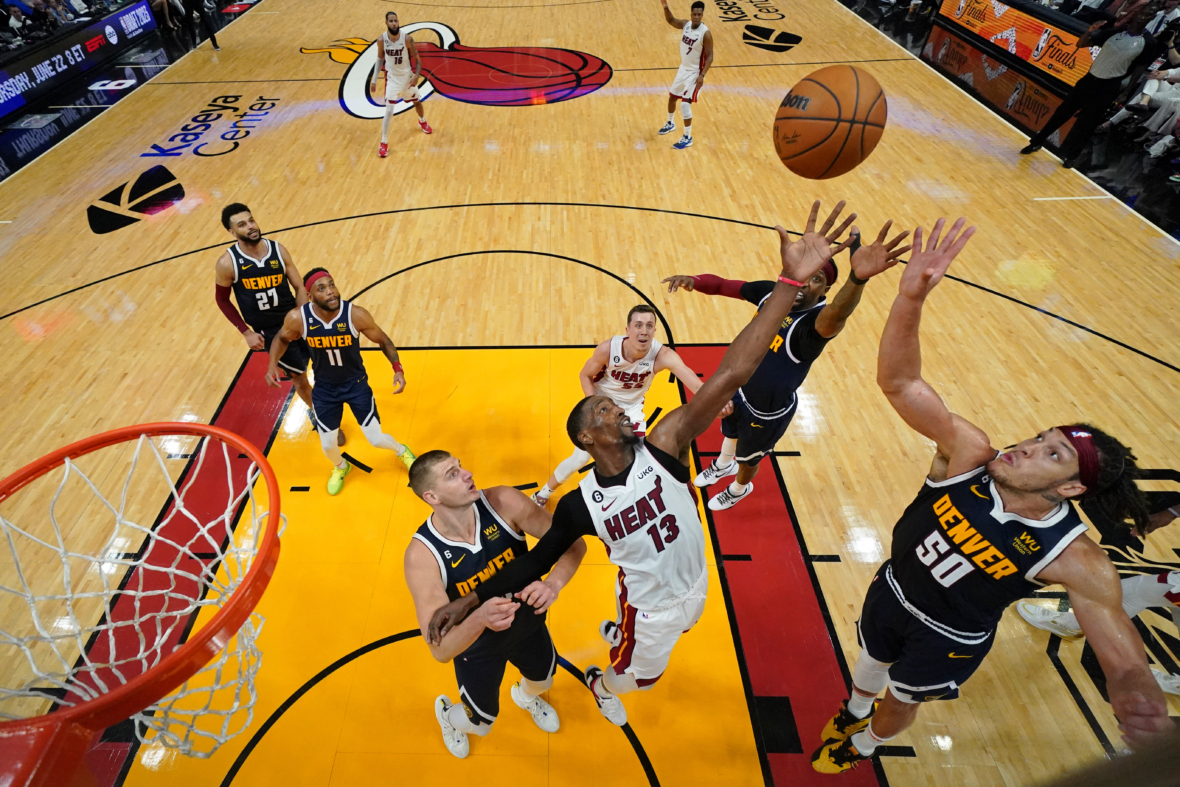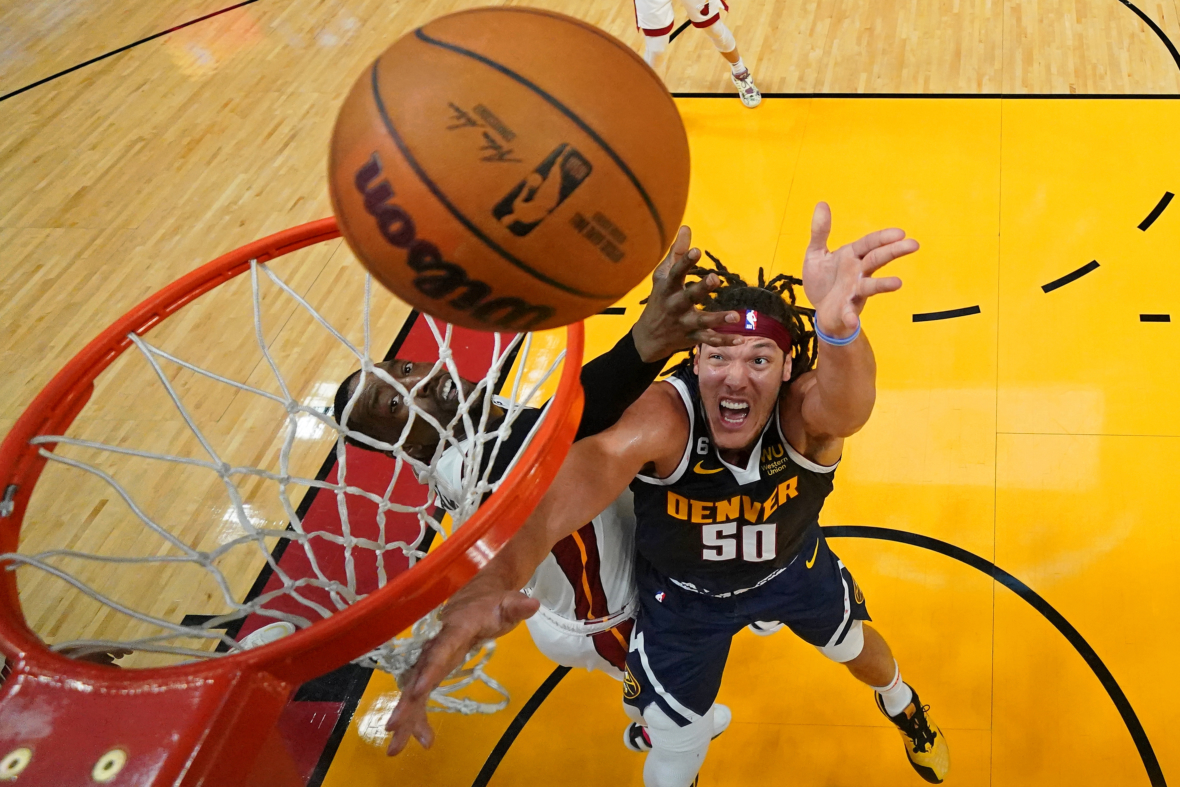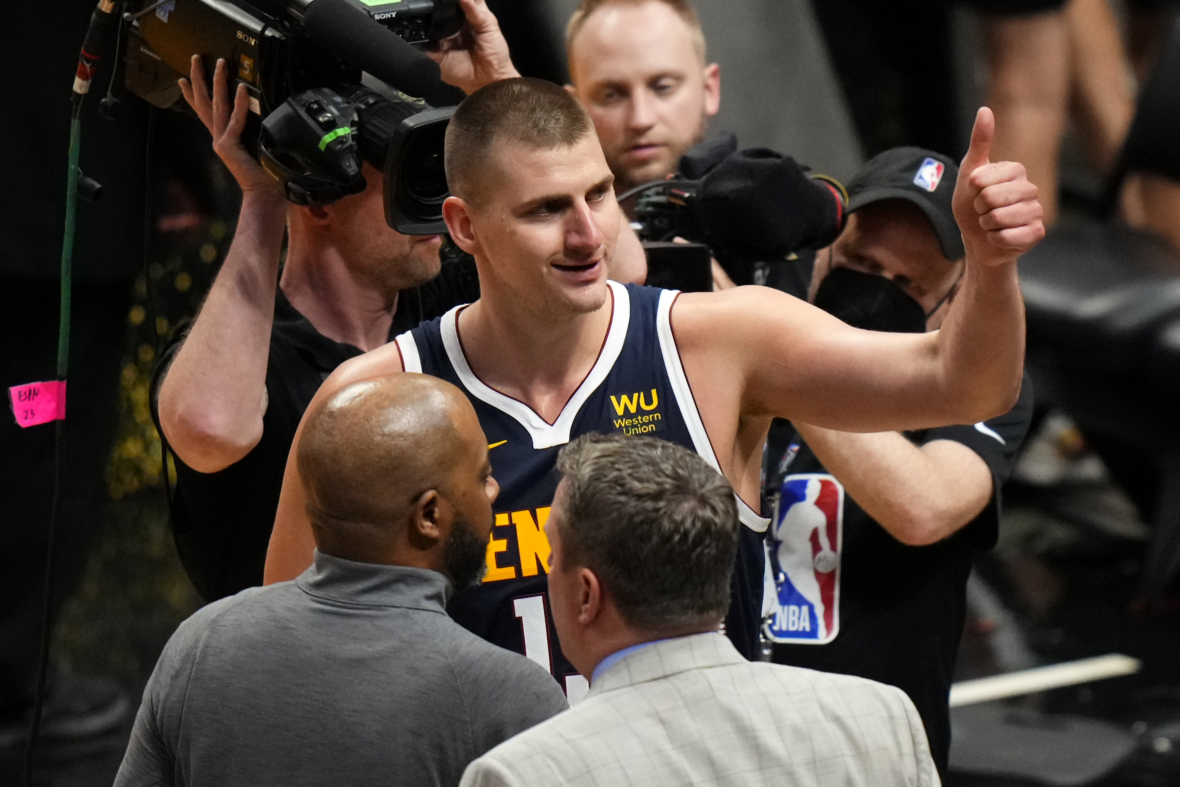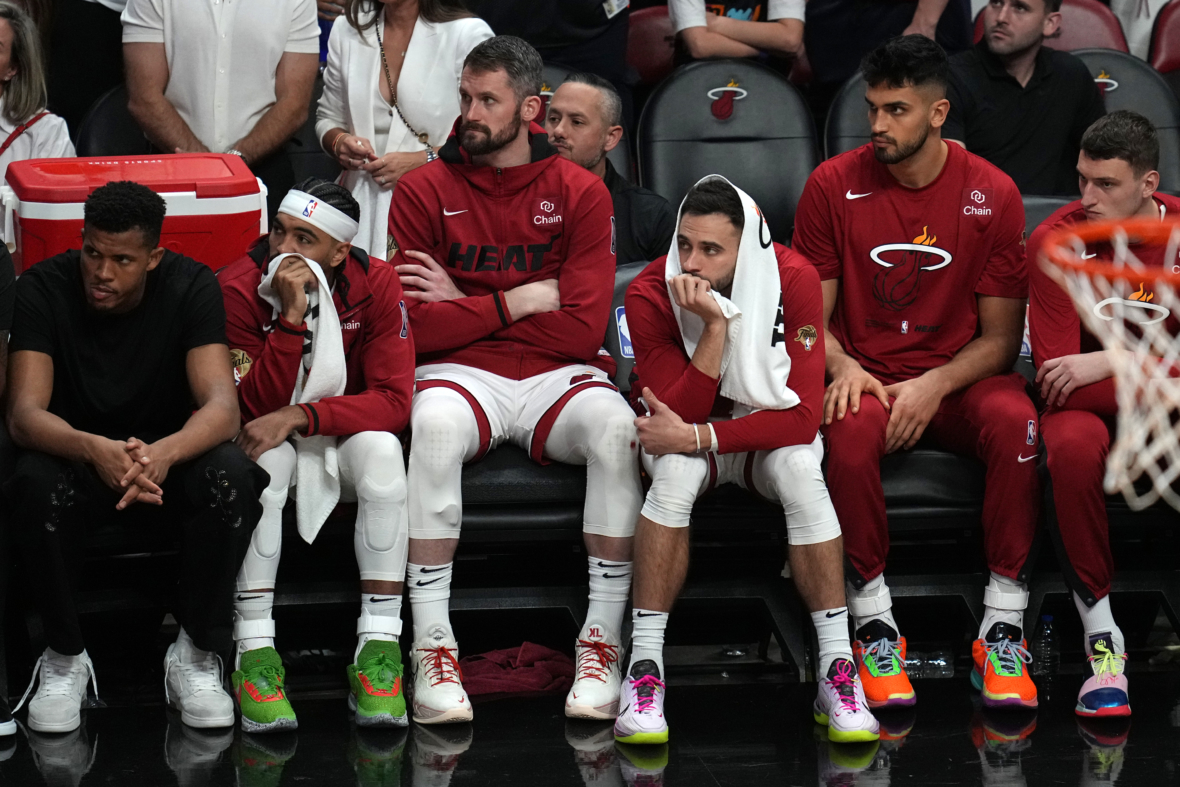Through both the excruciating highs and stressful lows, the Denver Nuggets reinforced a year-long theme. The Nuggets are simply a superior basketball team.
Denver secured a 108-95 win over the Heat in Game 4 of the NBA Finals on Friday by displaying that in various ways.
Related: NBA games today – Get watch times and odds for the next NBA Finals matchup
Below are the five major factors that led to the Denver Nuggets’ victory, which gave Denver a 3-1 series lead over the Miami Heat and a chance to close out with an NBA championship in Game 5 at home on Monday (8:30 PM ET, ABC).
Denver Nuggets absorbed the Heat’s comeback effort

Game 4 often played out this way. Denver created a cushion. Miami chipped away. The Denver Nuggets then created separation. The Heat then refused to quit.
Miami never quite seemed in the game, but the Heat never appeared out of it, either. Just when it appeared Miami could mount a comeback, however, Denver promptly put a stop to it.
Nothing captured that dynamic more than when officials called Nuggets center Nikola Jokic for his fifth foul, while Denver held a 86-76 lead with 9:24 left. Denver coach Michael Malone took Jokic out reluctantly, but the Nuggets obviously needed their star center for crunch time.
The Miami Heat then went into come-back mode. Jimmy Butler drove in for a 3-point play. He pulled up for another jumper. Duncan Robinson made a floater. Butler made a pair of foul shots. Each shot felt breathless. Really, though, it meant little. Once Jokic checked in with 4:09 left, the Nuggets held a 96-87 cushion. Miami made up ground by only one point while Jokic sat on the bench.
Aaron Gordon played a perfect game

The Nuggets forward played the exact way the franchise envisioned ever since acquiring him before the 2021 trade deadline. He posted a team-leading 27 points while shooting well from the field (11-for-25) and from deep (3-for-4) along with six rebounds, six assists, and two steals.
Gordon technically led the team in points, but the offense hardly ran through him. Gordon produced by making sharp cuts while Jokic drew double teams. Gordon also ran around the perimeter to keep the Heat’s defense honest. After working on his outside shooting last offseason, Gordon made the Heat pay by leaving him open from deep.
Gordon is perfectly capable of becoming the team’s focal point. He was the Orlando Magic’s go-to option for seven and a half seasons, after all. But Gordon has done so with Denver by working around the edges. Miami has paid attention to him on the scouting report. The Miami Heat can’t devote that many resources to Gordon, though, without compromising their defensive coverages on Jokic and Jamal Murray (15 points, 12 assists).
Nikola Jokic was not affected by first-half ankle injury

Initially, the Denver Nuggets observed their worst nightmare playing out in real life. Late in the first quarter, Jokic twisted his right ankle after landing awkwardly on Max Strus’ foot. Soon after, Jokic went to the locker room for treatment and sat on the bench before the second quarter with his ankle wrapped.
Then Jokic played as if the ailment didn’t bother him at all. At least not enough to affect his play. Jokic still finished with 23 points, 12 rebounds, four assists, three steals and two blocks. Nitpick all you want, that Jokic didn’t record a triple-double once again in the NBA Finals. But since when should that be the standard?
Initially, Jokic appeared to favor taking more 3s perhaps as a way to put less pressure on his ankle. But he mostly played aggressively and varied his shot selection later on before finishing efficiently from the field (8-for-19), from deep (3-for-7), and from the free-throw line (4-for-4).
The Miami Heat’s shooters struggled again

Butler did all he could to have an epic playoff performance (25 points on 9-for-17 shooting). Bam Adebayo seemingly did everything both offensively (20 points, 11 rebounds) and with forcing Jokic into foul trouble. It didn’t matter. Despite the Heat’s star power and team-wide competitiveness, they struggled with Strus (0-for-4), Gabe Vincent (1-for-6), and Caleb Martin (5-for-12) struggling to hit shots. Not even Robinson’s late-game flurry could offset that (12 points overall on 5-for-7 shooting).
The Heat had some inspiring role-player moments. Kevin Love scored nine of his 12 points in the third quarter and made some key defensive stops. Kyle Lowry added 13 points and occasionally looked in his prime again. Miami’s poor outside shooting still became too much. Even if the Miami Heat’s offense does not revolve around 3s, they clearly need their shooters to shoot more consistently. It’s no coincidence that this only happened in the Miami Heat’s Game 2 win.
Denver’s Bruce Brown had a breakout game
The Denver Nuggets wing player punished the Heat’s defense both at the rim and from deep. Brown finished with 21 points while shooting 8-for-11 from the field and 3-for-5 from deep along with four rebounds. Brown mixed up the way he scored, but he stayed disciplined with how he scored.
Brown played at a fast pace. He made sharp cuts to receive open looks. He became aggressive any time he touched the ball. The Nuggets have mostly valued Brown’s defensive presence, but he has proven he can also add instant offense.


